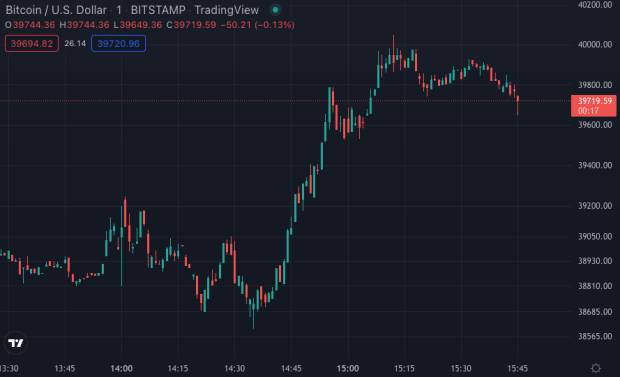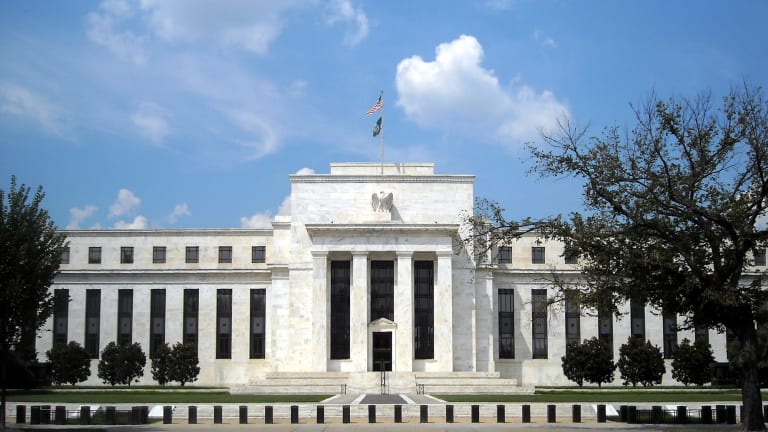The Federal Reserve raised rates by 50 basis points on Wednesday in its latest attempt to curb inflation in the U.S.
The U.S. Federal Reserve (Fed) has raised interest rates by 50 basis points in its largest hike since 2000.
Bitcoin briefly touched $40,000 after the Fed released its new monetary policy guidelines.

The central bank’s Federal Open Markets Committee (FOMC) said in a Wednesday statement that the decision was made to support its goals of achieving maximum employment and curbing inflation rates to 2% over the longer run.
The committee also announced plans to begin shrinking its balance sheet on June 1, and detailed the path it would take in a separate statement on Wednesday.
Fed Chair Jerome Powell went live in a press conference shortly after the release of the central bank’s new monetary policy strategies.
“Inflation has obviously surprised to the upside in the past year and further surprises could be in store,” Powell said.
He added that since inflation is running rampant, additional increases in rates by the same 50 basis points are on the table for future meetings. However, the committee does not plan to go beyond that, he explained, citing that 75 basis points is not something that the FOMC is currently considering.
“Expectations are that we’ll start to see inflation flattening out, not necessarily declining, but we’ll see more evidence that it’s reached a peak,” Powell said. “We want to see evidence that inflation is coming down.”
Powell explained that the central bank is raising rates with the goal of reaching so-called neutral rates – the theoretical federal funds rate at which the stance of Fed monetary policy is neither accommodating nor restrictive, according to the Federal Reserve Bank of Dallas. Accommodating, or dovish, policies keep interest rates low to support hiring, while restrictive, or hawkish, policies keep them higher in order to curb inflationary pressures.
“We are raising rates to what we see as neutral but we know there isn’t an indication that tells us when we get there,” Powell explained. “We’ll be [raising rates] and seeing the effects on the economy. If higher rates are required we will not hesitate to deliver them.”
Powell went on to explain that while the central bank is committed to curbing inflation, its tools naturally don’t work on the supply side – only on demand. Therefore, he anticipates that while the Fed is taking a hawkish stance to diminish demand, issues on supply might hurt the effectiveness of its policies.
“We’ve had a pandemic, then the highest unemployment rate since the depression, then this outsized response from fiscal and monetary policy, then we have inflation, then we have a war in Ukraine, and now we have these shutdowns in China,” Powell said.
“It’s been a series of inflationary shocks that are different from anything anyone has seen in 40 years, and we need to somehow find price stability out of this,” he confessed.








